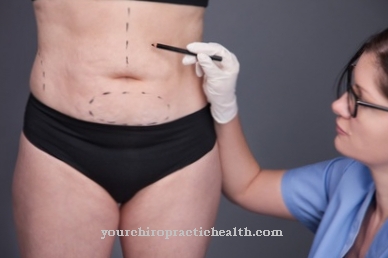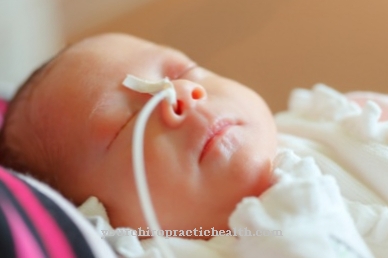The Travel medicine covers different areas, such as prevention and treatment. It is used by people who are planning a vacation in another country or by people who have just left abroad. Precautions must be taken in advance, especially when traveling to the tropics.
What is the travel medicine?

The term travel medicine includes all medical measures that are used for prophylaxis, diagnosis and therapy for diseases that arise abroad. Travel sickness has increased in recent years. A parallel can be drawn with the increasing frequency of stays abroad. In addition, holidays are now being spent in regions further away than it used to be. Many Europeans fall ill, especially in tropical and subtropical latitudes.
In most cases it is a harmless gastrointestinal upset. But more serious complaints cannot be ruled out either. Some can be effectively prevented, such as getting a vaccination or wearing appropriate clothing to protect against mosquito bites. In addition, specific behavior can help avoid infections. In some countries there are compulsory vaccinations, without which entry is not possible. There is such a regulation in Brazil, for example. The South American country can only be already by people who have a yellow fever vaccination in their passport. This means that prevention is also part of travel medicine, as is treatment in the event of illness.
Treatments & therapies
The goals of travel medicine are different. On the one hand, illnesses should at best be prevented, on the other hand they should be treated in such a way that there is no permanent damage. Various measures are suitable for prophylaxis. These include above all vaccinations. A visit to the doctor can provide information about the required syringes, which will be administered depending on the planned trip.
For example, vaccination against yellow fever is not necessary in some countries, while it should not be missing when traveling to other places. Vaccinations against hepatitis A and B, cholera, influenza, rabies, typhoid, polio, yellow fever and meningococci are particularly recommended. The doctor decides which vaccination is ultimately necessary. Some syringes require multiple applications. Accordingly, it is important that travelers inform themselves in good time so that the treatment is completed before the start of the holiday and the vaccination protection is guaranteed. Education is also part of prophylaxis. This is offered by some tropical doctors, but extensive information can also be found on the Internet.
If the vacation is in the tropics, long items of clothing and a mosquito net over the bed can help against unpleasant bites, which can lead to illness. Fruit and vegetables should be washed or peeled sufficiently. Furthermore, the tap water is not drinkable everywhere. Bacteria or other pathogens can be in the water. If in doubt, the water should be boiled before consumption so that there is no infection. In addition, travel medicine deals with the diagnosis and treatment of people who have just returned from abroad. For some tropical diseases such as malaria and dengue fever, it is important to act quickly to maintain health.
A doctor with the appropriate specialist knowledge should be consulted so that the complaints can be quickly classified. Tropical doctors are particularly suitable for this. Other risks of illness while traveling are changes in climatic conditions, such as those at high altitude or when it is very cold. Travel medicine thus encompasses various diseases and complaints. In addition to diarrhea, infections and parasites are also treated.
Diagnosis & examination methods
In many complaints, the blood provides information about the physical condition of the person. Accordingly, if symptoms exist, doctors often take blood samples in order to examine them in the laboratory. Such a method is also used for many diseases that can be classified as travel medicine. Persistent fever after a vacation to the tropics can be a sign of malaria. As soon as the doctor has the relevant suspicion, he usually tries to detect the pathogens in the patient's blood.
If there are plasmodia in the sample, the disease is considered diagnosed. A similar test also helps to detect dengue fever. This is usually transmitted by mosquitoes and manifests itself as a fever, rash and pain in the joints, muscles, head or limbs. Dengue fever can usually not be detected directly. The blood sample is only successful between the third and seventh day of the disease, before a diagnosis of the virus is very difficult to carry out. By the eighth day at the latest, however, antibodies directed against the pathogen can be found in the patient's blood. Typhoid can also be detected via a blood test. Changes in the blood can be revealed, such as a reduction in white blood cells.
The situation is different, however, with complaints that affect the stomach or intestines. Traveller's diarrhea is not a rare symptom on vacation. If this lasts longer than 48 to 72 hours, a doctor should be consulted. A stool sample provides the exact cause of the complaint. At best it is a fresh sample. Traveller's diarrhea is usually uncomfortable, but harmless if you consume enough water. However, a stool sample can also diagnose cholera as part of travel medicine. It is therefore important that the completed vacation is always mentioned to the doctor if there are any complaints.













.jpg)

.jpg)
.jpg)











.jpg)